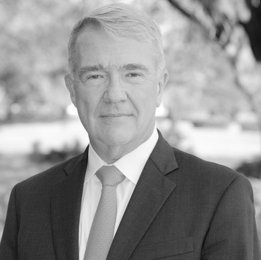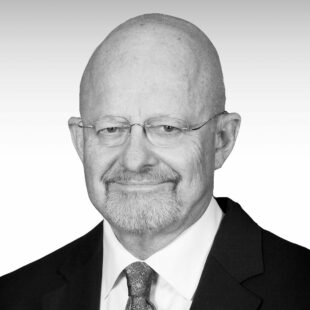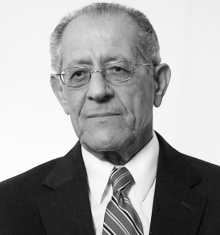SPECIAL REPORT – In the last days of 2024, The Cipher Brief turned to our network of experts – who spend much of their time looking at the risks and threats facing the U.S. and the rest of world – and asked them a different question, more in line with the holiday season: What gives them hope?
While our focus – and theirs – is necessarily on war, cyberattacks, gray-zone tactics, the “Axis of Authoritarians,” and so forth, here we asked the experts to reflect on one specific question: What, if anything, on the national/global security landscape gives you reason for hope?
Their answers covered a range of issues and parts of the world – from the spirit of innovation to advances in AI to the Middle East (yes, “hope” and “Middle East” were joined in more than one answer). Some offered several paragraphs; others a single sentence; one respondent – the former Director of National Intelligence James Clapper – gave a two-word (and not so hopeful) answer.
Taken together, they have given us much to think about, as 2024 draws to a close and the new year beckons. We hope they add notes of hope to your holiday season as well.
General David Petraeus (Ret.)
General David Petraeus served more than 37 years in the U.S. military with six consecutive commands, five of which were combat, including command of the Multi-National Force-Iraq during the Surge, U.S. Central Command, and Coalition and U.S. Forces in Afghanistan. He is a partner in the KKR global investment firm and chairs the firm’s global institute.
Gen. Petraeus: The pace of America’s technological innovativeness, the emergence of hugely impressive entrepreneurial young leaders in this country, and the basic qualities and attributes of the U.S. economic ecosystem are all sources of enormous hope, despite the return of geopolitics with a vengeance and the sheer number of complexities in the challenges around the world.

General Frank McKenzie (Ret.)
Gen. McKenzie (Ret.) is Executive Director of the University of South Florida’s Global and National Security Institute. In July 2022, he also became the Executive Director of the Florida Center for Cybersecurity, also known as Cyber Florida. He is the former Commander, United States Central Command. Gen. McKenzie was commissioned into the Marine Corps and trained as an infantry officer.
Gen. McKenzie: There is hope in the Middle East, and what has happened to Iran. The decapitation of Lebanese Hezbollah has removed Iran’s strategic hedge against Israel. The failure of two Iranian missile and drone attacks on Israel laid bare their offensive inadequacies before the world. The Israeli response has highlighted the increasing technological gap between Israel and Iran. The sudden demise of Bashar al-Assad’s Syria is a fitting end to what has proven to be a disastrous year for Iran. Every foundational element of Iranian security policy has been tested — and found wanting.

John McLaughlin
John McLaughlin is the Distinguished Practitioner in Residence at the Johns Hopkins School of Advanced International Studies (SAIS). He served as both Acting Director and Deputy Director of the Central Intelligence Agency. McLaughlin served as a U.S. Army Officer in the 1960s, with service in Vietnam.
McLaughlin: There is perhaps a ray of hope in the weakening of Iran and the weakening of Hezbollah as a result of their conflicts with Israel. Neither is in a very strong position to continue creating instability in the Middle East. The collapse of the Assad government in Syria is related to this and may be a source of hope or despair, depending on what the new government chooses to do and with whom it chooses to ally.

Nick Fishwick
Nick Fishwick CMG retired after nearly thirty years in the British Foreign Service. His postings included Lagos, Istanbul and Kabul. His responsibilities in London included director of security and, after returning from Afghanistan in 2007, he served as director for counter-terrorism. His final role was as director general for international operations.
Fishwick: 2024 was a brutal year, but I found some consolation: first, the strategic downgrading of the capabilities of Hamas and Hezbollah have to be good for regional security in the Middle East, because they should mean a decisive setback for Iran’s regional ambitions. Secondly, a year ago observers worried about elections in 2024 and whether democracy was under threat, not least in the U.S. So it was something that elections on both sides of the pond worked with results that were accepted and most people realizing that if they didn’t like the results – well, that’s democracy. At the same time, continued meddling in internal politics by malicious actors – look at Georgia and Romania – need to be countered aggressively.
More broadly it seems to me that the best cards – technological, economic, political – are still in western hands. We should have confidence in our values – free speech, democracy, pluralism – because other countries suffer for their absence. We need leaders who have an appreciation of how power works in the modern world and who will use it in defence of those values. We need western governments who will use this power a bit more assertively, rather than apologize for it.

Linda Weissgold
Linda Weissgold spent 37-years at CIA. Before the 9/11 terrorist attacks, she was an analyst and leader of analytic programs focused on the Middle East. She served as head of the CIA’s Office of Terrorism Analysis and helped to identify Usama Bin Laden’s location and the rise of ISIS. For more than two years, she served as President George W. Bush’s intelligence briefer.
Weissgold: While there is likely to be a growing gap in the years ahead between what people demand and what governments can deliver, it is hard not to be optimistic about our future when interacting with the American private sector and talented students. The entrepreneurial spirit is alive and well, and if we, as a society, demand the resources, I have no doubt that the private sector will respond positively and quickly. I am already seeing signs that the technology is evolving to provide more transparency for those who want to explore alternative views, read original sources, and assure that images have not been doctored. I also have just completed my first semester teaching at Texas A&M’s Bush School of Government and Public Service in Washington, DC. I can’t help but be inspired by a new generation interested in answering the call for public service to make the world a better and safer place.

Ralph Goff
Ralph Goff is a 35-year veteran of the CIA where he was a 6-time Chief of Station with extensive service in Europe, the Middle East, and Central and South Asia including several war zones. He served as Chief of Operations for Europe and Eurasia. Goff also served as Chief of CIA’s National Resources Division, working extensively with “C Suite” level US private sector executives in the financial, banking, and security sectors.
Goff: The quality of younger-generation members in both the U.S. intelligence community and the U.S. Special Military Operations Command. They are tech-savvy – far more so than my generation will ever be. They are intellectually curious but far more skeptical than was my generation. This skepticism means they tend to question authority – sometimes maybe too much. However, when their older generation leaders earn their trust – and their trust is earned, not simply given – they are capable of following orders and carrying out the most challenging tasks. I’m very optimistic about the next generation of young leaders both in government and the military as well as in the private sector.

Ambassador Joseph DeTrani
Ambassador Joseph DeTrani served as the U.S. Representative to the Korea Energy Development Organization (KEDO), as well as former CIA director of East Asia Operations. He also served as Associate Director of National Intelligence and Mission Manager for North Korea, was the Special Envoy for the Six-Party Talks with North Korea, and served as the Director of the National Counter Proliferation Center, ODNI. He currently serves on the Board of Managers at Sandia National Laboratories.
Amb. DeTrani: That China and the U.S. realize that there are a myriad of global security issues on which we can and should collaborate: Pandemics, climate change, drug trafficking, nuclear proliferation, international organized crime, and international terrorism.
Meanwhile, China’s Xi Jinping will realize that a military move against Taiwan is not in China’s interest, as long as Taiwan does not declare independence. And while Xi Jinping’s plan to make China the preeminent global power by 2049 will persist in propaganda, in reality, China will face massive economic and domestic political issues that will prove difficult to manage, ensuring that China will never be the preeminent global power. This, while the U.S. economy continues to grow, and people in more countries, including China, realize that dictatorships/autocracies do not benefit the people or the country. Countries will aspire to be democratic, despite brutal efforts by dictators and despots to stop them.

Paula Doyle
Paula Doyle served as Assistant Deputy Director for Operations at CIA, where she oversaw worldwide HUMINT operations and activities that required the use of air, land, maritime, space-based and cyber technologies. She was the Deputy National Counterintelligence Executive from 2012-2014, where she oversaw the official US Damage Assessment resulting from Private Manning’s 2010 unauthorized disclosures to Wikileaks and led the IC’s extensive review of Edward Snowden’s unauthorized disclosures and defection to Russia. She led three CIA stations in Europe, the Levant, and Asia.
Doyle: In the Middle East, the new administration can set bolder policies. First, quickly end the violence in Israel, Lebanon and Gaza, and rush in massive deliveries of “made in the USA” food, water, blankets, and shelter so that everyday people affected by the wars can go home — visibly seeing a proactive role by the US. Second, mount a dedicated messaging campaign that exposes Tehran’s long track record of failure wherever it has gone — e.g., chronic instability, wholesale destruction, human suffering, and endless wars affecting millions of everyday families. U.S. messaging should associate Iran with a future that promises instability, destruction, and suffering. The messages should inspire the people of the region to make better choices. Third, the U.S. should identify elected leaders in Lebanon and Iraq who are willing to blame Iran, Lebanese Hezbollah, and Kata’ib Hezbollah for causing such profound harm to their people. As these three objectives fall into place, the U.S. should commit to helping trusted Iraqi and Lebanese actors confront internal corruption and terrorism, rebuild wrecked buildings and infrastructures, and restore market-based economic practices.
In 2024, Ukraine conquered a part of Russian territory and damaged and/or destroyed Russian munitions depots and air airfields in ways that should give Kyiv a stronger position from which to negotiate the return of some or all of eastern Ukraine and Crimea. If both sides should agree to negotiate, Moscow and Kyiv could arrive at a ceasefire arrangement and a green zone demarcation that UN peacekeepers could monitor and enforce. Two modern ceasefire arrangements come to mind as possible models: Kosovo and Cyprus. Neither ceasefire agreement has been fair to thousands of separated families, lost homes and businesses, and empty chairs at countless tables; both ceasefires, however, have resulted in decades of relative peace and prosperity between warring parties.
If sovereignty remains the coin of the civilized society’s realm, Russia will withdraw; nations holding frozen or ceased Russian assets should be allowed to realign them to the reconstruction of Ukraine. This is more hope than likelihood.
If Russia gets to keep one inch of Ukraine, however, (as it has done vis-a-vis South Ossetia since 2008), sovereignty will erode and become an appeasement tool that will serve as a model for China to become more aggressive with Taiwan and its ambitions in the South China Sea. Appeasement is a policy born of fear, fatigue, weakness, and doubt. It is un-American. Sovereignty must prevail. Slava Ukraini.

Nick Thompson
Nick Thompson is a former CIA Paramilitary Case Officer and Naval Special Warfare Development Group operator. With over 20 years of experience in the national security space, Nick has conducted countless clandestine operations and combat deployments with a primary focus in the Middle East and Asia. He has regularly navigated and led foreign intelligence collection and covert action initiatives by building networks with a diverse range of stakeholders. He now works in Washington D.C. at Anduril Industries, a leading defense technology company, seeking to bring cutting edge capability to intelligence and defense professionals alike.
Thompson: Continued, swift and enhanced multilateral cooperation. Finland and Sweden, welcome to NATO. The AUKUS (the U.S., UK, and Australia) security partnership continues to progress and will pave the way for ambitious and ground breaking technology to reach end users at speed. The landmark Abraham Accords between Israel, the UAE and Bahrain have grown to include Morocco and Sudan. Hopefully Saudi Arabia is next to join. South Korea and Japan, two strategically important countries, are moving together cautiously and collaborating on intelligence and defense again. While these alliances address terrorism, promote economic stability and growth, and many other things, their most important role is sending a message of deterrence to our most capable adversaries.

Ellen McCarthy
Ellen McCarthy is Chairwoman and CEO of the Trust in Media Cooperative. She has over three decades of national security service in a variety of leadership roles that span numerous intelligence organizations, most recently serving as the Assistant Secretary of State for the Bureau of Intelligence and Research. She’s currently a senior fellow at the Belfer Center at Harvard University.
McCarthy: Heading into 2025 there are many reasons to be hopeful. The same advancements in AI that challenge the information ecosystem are also driving breakthroughs in healthcare, science, education and defense. Innovations in AI, quantum computing and cyber security will bolster national security capabilities, improving threat detection and decision making precision.

Lt. Gen. James R. Clapper (Ret.)
Lt. Gen. James Clapper served from 2010 – 2017 as the Director of National Intelligence. He served in two administrations as the Under Secretary of Defense for Intelligence and directed the National Imagery and Mapping Agency (NIMA), transforming it into the National Geospatial-Intelligence Agency (NGA).
Lt. Gen. Clapper: Not much.

Emile Nakhleh
Dr. Emile Nakhleh is a retired Senior Intelligence Service Officer, a founding director of the CIA’s Political Islam Strategic Analysis Program and the Global and the National Security Policy Institute at the University of New Mexico. Since retiring from the government, Nakhleh has consulted on national security issues, particularly Islamic radicalization, terrorism, and the Arab states of the Middle East. He is a life member of the Council on Foreign Relations.
Nakhleh: At the risk of sounding pollyannish, I would flag several hopeful possibilities:
Donald Trump’s proclivities, and possible policies, to end regional conflicts, particularly between Russia and Ukraine and between Israel and its neighbors; a possible path toward a two-state solution in Israel/Palestine; an unexpected rapprochement between Israel and Iran and concomitantly between Iran and its Gulf Arab neighbors; and a more stable period of global commerce despite Trump’s threat of tariffs.
Any of the above optimistic scenarios would be undermined by the emergence of several unexpected and potentially disruptive wild cards. These could include: Coordinated rogue use of AI and cyber warfare by non-state actors, which the existing global order might be unable to combat or neutralize; ascendant BRICS and other international groupings that could undercut America’s influence and economic dominance regionally and globally. Trump’s threat to impose 100% tariffs on BRICS member states would be ineffective and certainly harmful to global order and international commerce and banking; Israel and Iran (and their proxies) could reject all attempts at rapprochement and instead careen toward all-out regional war.
Read more expert-driven national security insights, perspective and analysis in The Cipher Brief.


